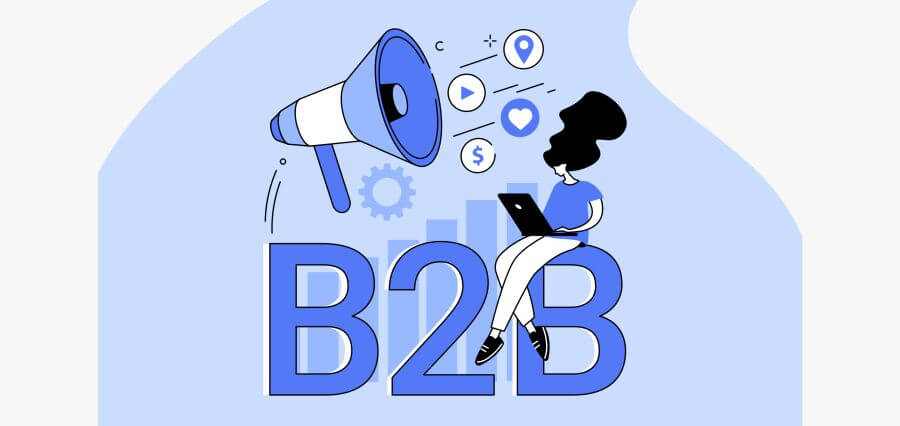Market segmentation, the practice of breaking a large market into discrete groups with comparable features and demands, is an important part of understanding consumer wants and behaviors. While most B2B market segmentation research has concentrated on objective characteristics such as industry, firm size, and purchasing power, an extra dimension is emerging as a significant success determinant: emotion.
These have long been regarded as key customer behavioral drivers in B2C marketing, but their importance in B2B situations is growing. Despite their reputation as analytical decision-makers, B2B buyers are not immune to the influence of emotions while making purchase decisions. Incorporating emotional concerns can yield useful insights that allow organizations to better cater to the requirements and preferences of their customers.
Emotional Drivers Of Decision Making
Traditionally, B2B market segmentation has been focused primarily on industry, firm size, and purchasing power. However, as our understanding of human behavior and decision-making processes has grown, we are becoming more conscious of the significance of emotions in purchase decisions.
These purchasers do not lack emotions; rather, they use rationality in conjunction with emotions to make decisions. A range of emotions, including trust, fear, optimism, and enthusiasm, influence B2B buyers’ views and evaluations of potential providers.
Trust is a key factor that can tip the scales in one supplier’s favor over another. When shoppers believe it, they have more trust in a company’s ability to deliver on promises, provide outstanding products or services, and maintain a long-term relationship.
Fear and uncertainty, on the other hand, can lead to hesitating and resisting decisions. Marketers may customize their messaging and services to develop trust and ease fears, boosting the likelihood of obtaining B2B sales by recognizing and addressing these psychological factors.
Value Perception
Traditionally, B2B market segmentation has been focused primarily on industry, firm size, and purchasing power. However, as our understanding of human behavior and decision-making processes has grown, we are becoming more conscious of the significance of emotions in purchase decisions.
These purchasers do not lack emotions; rather, they use rationality in conjunction with emotions to make decisions. A range of emotions, including trust, fear, optimism, and enthusiasm, influence B2B buyers’ views and evaluations of potential providers.
Trust is a key factor that can tip the scales in one supplier’s favor over another. When shoppers believe it, they have more trust in a company’s ability to deliver on promises, provide outstanding products or services, and maintain a long-term relationship.
Brand Preference
B2B market segmentation has traditionally been based largely on industry, company size, and purchasing power. However, as we get a better knowledge of human behavior and decision-making processes, we are becoming more aware of the importance of emotions in purchasing decisions.
These buyers do not lack emotions; rather, they make decisions by combining logic and emotion. B2B purchasers’ opinions and evaluations of potential suppliers are influenced by a variety of emotions, including trust, anxiety, optimism, and excitement.
Trust is a critical component that might tip the scales in favor of one provider over another. When customers believe it, they have higher faith in a company’s capacity to keep promises, provide excellent products or services, and sustain a long-term connection.
Furthermore, it has a significant impact on molding brand choices for b2b clients. Businesses may have emotional relationships with specific brands based on their quality, dependability, great prior experiences, or even shared ideals. This is impacted not just by intellectual criteria but also by the links and associations a brand generates.
It is important to note that this might change depending on the stage of the purchase procedure. Curiosity, enthusiasm, and even cynicism may be created throughout the awareness and deliberation stages when customers investigate prospective solutions. As the decision-making process proceeds, emotions such as trust, confidence, and reassurance become increasingly important in establishing a solid relationship with the chosen provider.
Product & Service Differentiation
Understanding the emotional motivations of the target audience becomes crucial when targeting b2b markets. Sentiments associated with agility, innovation, and disruption may be important impacts for a B2B software firm focusing on SMEs.
By personalizing their messages and accentuating the benefits of their service, they may position themselves as the ideal alternative for businesses trying to stand out in a crowded market.
Another aspect worth thinking about is how you are treated with customer service and support. B2B purchasers frequently demand ongoing help, and the degree of service can have a significant impact on their brand viewpoints.
Businesses can develop strong emotional connections with their customers by offering great client support that goes beyond simple problem-solving. These interpersonal connections can result in improved customer loyalty and advocacy, which can be a significant differentiator in the business-to-business market.
Conclusion
Despite the common misconception that business-to-business interactions are logical, understanding the emotional bonds that exist inside organizations is critical for progress. This assists in determining what motivates people, developing connections, shaping how people perceive a brand, influencing decisions, improving the end-user experience, and distinguishing goods and services.
As a consequence, businesses may acquire a competitive advantage and establish long-term relationships.


